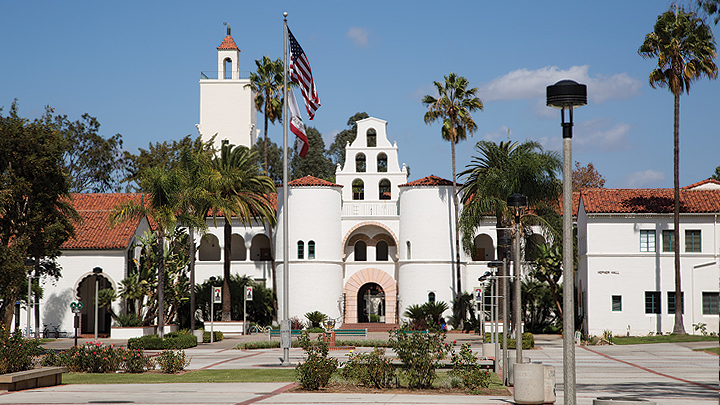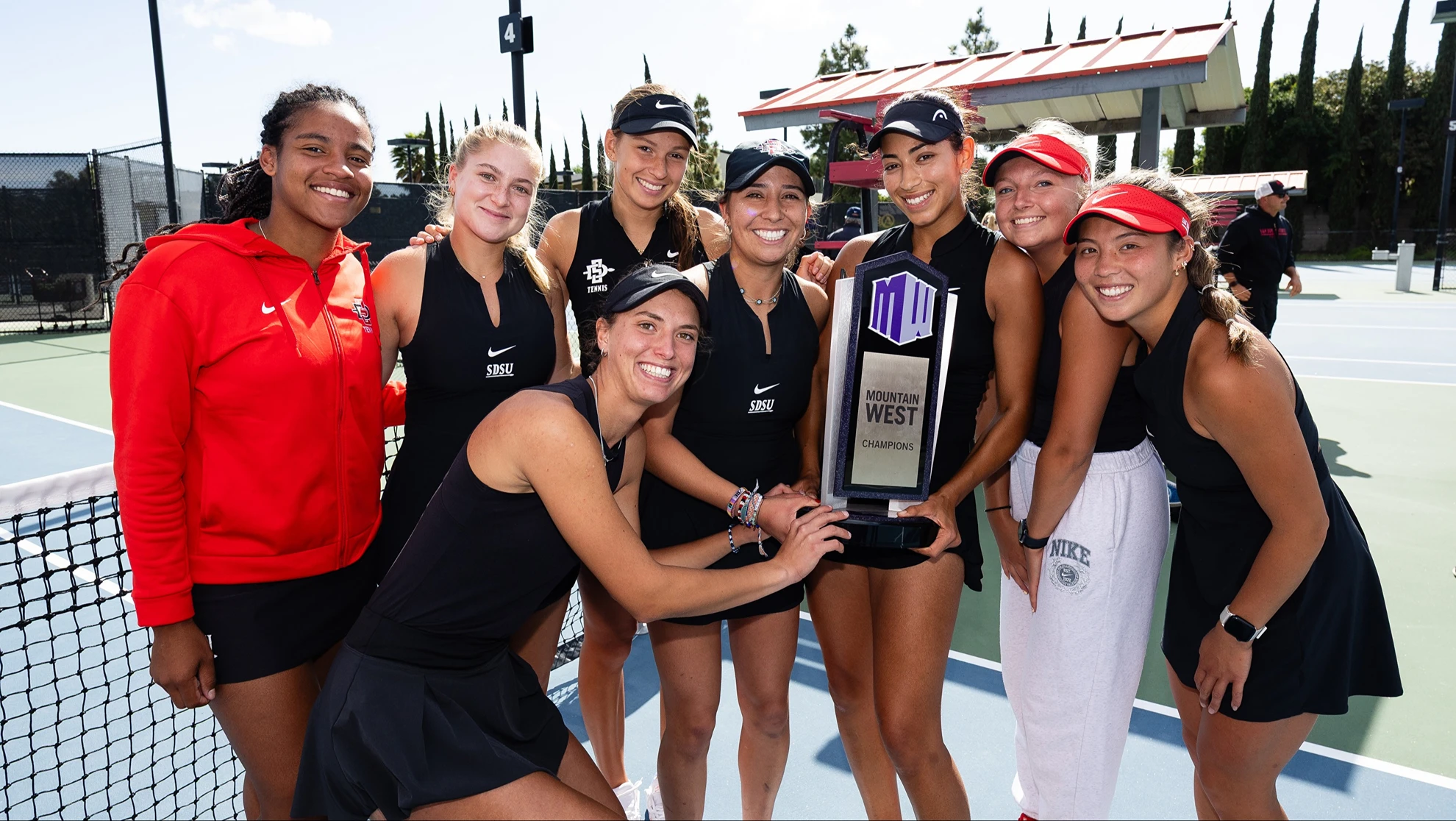SDSU lands seven winners of the competitive Fulbright U.S. Student Program awards
Research on an infectious pathogen and teaching English are among the plans for visits to countries ranging from Ecuador to South Korea.
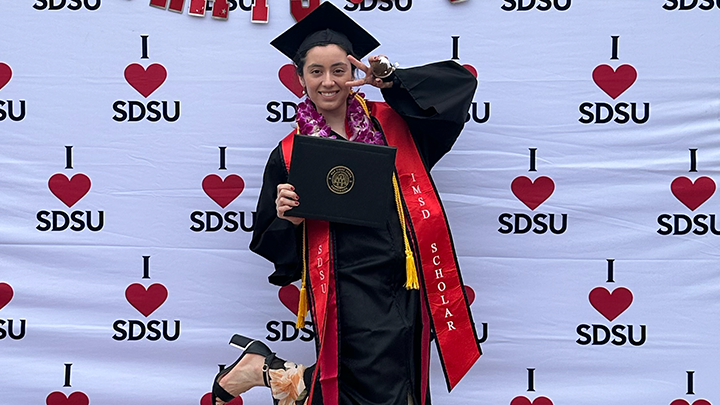
(Updated Aug. 23, 2024)
With destinations ranging from South America to Polynesia, seven San Diego State University students and recent alumni have won Fulbright U.S. Student Program grants for international study for the upcoming 2024-25 academic year.
Four SDSU Fulbright recipients will conduct research abroad, while two will work in Fulbright’s English Teaching Assistant Program. Recipients will travel to Tonga, Spain, South Korea, Turkey, Ecuador and Argentina.
The seventh recipient, announced in August, received Egyptian government approval to study at the Cario Advanced Arabic Studies and Immersion Center.
Funded primarily through the U.S. State Department, Fulbright grants provide students with the opportunity to expand their perspectives and improve understanding of different cultures. About 2,000 students nationwide receive one-year Fulbright grants annually.
“We are very proud of these impressive and newly minted Fulbright Scholars who have earned this highly competitive and prestigious honor,” said Cristina Alfaro, SDSU associate vice president of International Affairs.
Among them is Gabriela Contreras, who graduated with a bachelor’s degree in chemistry last fall and initially had low expectations about her Fulbright chances.
“I was thinking there are probably students from the Ivy leagues and top universities in the U.S. applying,” she said.
In January, her hopes picked up when she was named a semi-finalist. Then this spring, she received an electronic notice that her Fulbright application had been updated. “I opened the portal, and I actually got it.”
An alum of SDSU Professor Tom Huxford’s Structural Biochemistry Lab, Contreras will focus her Fulbright research on combatting Staphylococcus aureus, an antibiotic-resistant pathogen found in hospitals that is the leading bacterial cause of death worldwide.
She will travel to South Korea and work in the lab of Kim Kyeong Kyu, a structural biologist and professor in the Department of Precision Medicine at Sungkyunkwan University, supported by the Samsung Biomedical Research Institute. After the trip, she plans to enroll in graduate school in the Bay Area.
“I am looking forward to seeing how people from different cultures conduct science,” said Contreras. “Dr. Kim Kyeong Kyu’s laboratory is diverse. There are people from Bangladesh, Vietnam. There have been a few Americans in the past. I am excited to be working in an international laboratory.”
SDSU’s success rate for Fulbright applications was a highlight of this past cycle, said Yoshiko Higurashi, SDSU professor emerita of Japanese and Fulbright Student Advisor for the university.
Of the 20 students who applied, 10 were named semi-finalists.
“All of them are ladies, by the way, brilliant ladies,” said Higurashi.
Last year, two SDSU students became Fulbright scholars. Since 2005-06, 108 SDSU students have been awarded Fulbright grants. The top year for SDSU came in 2013, with 11 student Fulbright recipients out of 45 applicants, said Higurashi.
Higurashi credited her predecessor, Provost Emerita Nancy Marlin, for much of the success. Marlin continued to advise SDSU Fulbright Student Program applicants through August 2023.
The application window is open for the next round of Fulbright U.S. Student Awards for the 2025-26 cycle, with submission deadlines beginning in August. Higurashi hopes more SDSU students will apply for Fulbright awards given this year’s strong performance.
Contreras agrees.
“Honestly, just apply,” she said. “Let them tell you no. Who knows, they might say yes like they did for me.”
Here is a look at the other SDSU student Fulbright recipients in the 2024-25 cycle:
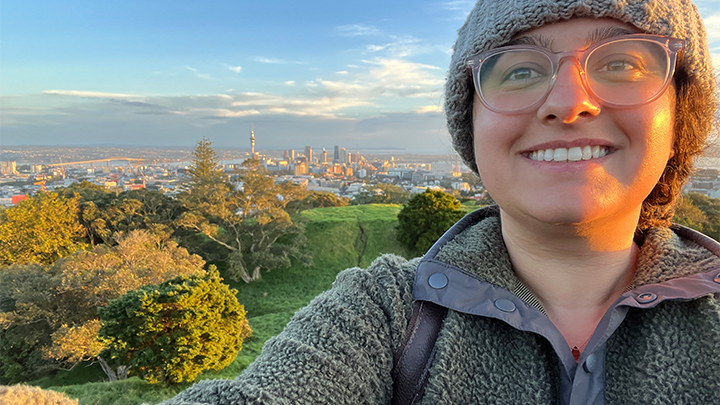 Open the image full screen.
Open the image full screen.As a child visiting relatives in Turkey, Gulce Ozturk loved snorkeling. These underwater adventures ignited her interest in environmental sciences. After earning her bachelor’s degree and working in the field, she joined SDSU’s Marine Conservation and Ecology Lab, also known as the Hovel Lab, as a graduate student. Her Fulbright research in Turkey focuses on the impact of invasive species on native urchin populations in the Mediterranean and Aegean Seas.
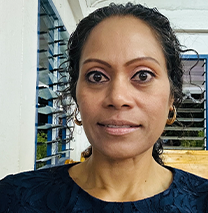 Open the image full screen.
Open the image full screen.
The daughter of immigrant parents from Tonga, Mele’ana K. Akolo witnessed the pain that substance abuse can bring to hard-to-reach and under-represented communities. Now advancing toward her Ph.D. in Interdisciplinary Research, Akolo will travel to the island nation of Tonga to probe gender differences in drug services and how the needs of women can be better addressed in treatments for substance use disorders.
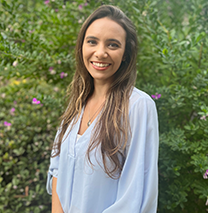 Open the image full screen.
Open the image full screen.As first-generation immigrants, Arianna Spata’s family struggled with access to consistent and affordable health care. That led her to study biology on a pre-med track and join SDSU’s Maternal and Infant Health Among Refugee and Asylum-Seeking Woman Project. Now a Public Health Epidemiology and Latin American Studies graduate student, she will travel to Argentina to research the postpartum impacts of insufficient prenatal care among migrant women in Buenos Aires.
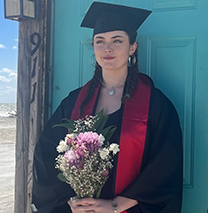 Open the image full screen.
Open the image full screen.
At 16, Madison Fitzpatrick joined an organization that provided English as a Second Language classes to Latinx adults. The experience taught her not only effective teaching techniques but also how small steps, such as helping individuals gain dual language skills, can be life changing. A SDSU International Security and Conflict Resolution graduate, Fitzpatrick received a Fulbright English Teaching Assistant Award in Ecuador.
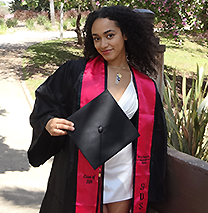 Open the image full screen.
Open the image full screen.
Lojeen Ragab, an SDSU graduate student in Global Business Development, was named a scholarship recipient by U.S Fulbright representatives last spring, but the required approval from Egypt’s Ministry of Foreign Affairs did not come through until August. Ragab could not be reached for comment.
In addition, Lilith Astete Vasquez, an environmental engineering Ph.D. student, won a Fulbright to study in Brazil. Vasquez designed a low-cost, low-maintenance and low-water toilet that could benefit homeless and refugee populations. Her research was featured in The Daily Aztec, SDSU Magazine and other publications. She missed SDSU’s Fulbright submission deadline, so she applied as an “at large” candidate with a non-endorsed affiliation with University of California San Diego, where she studies in the SDSU/UCSD joint doctoral program.
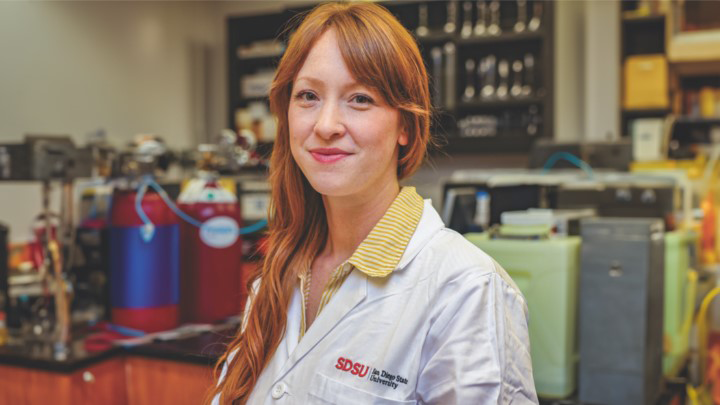 Open the image full screen.
Open the image full screen.
(Updated to include the announcement of a seventh Student Fulbright recipient.)

